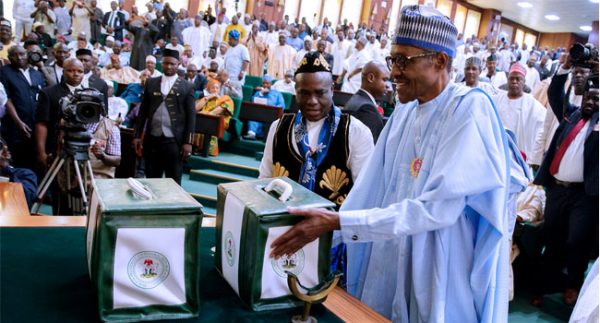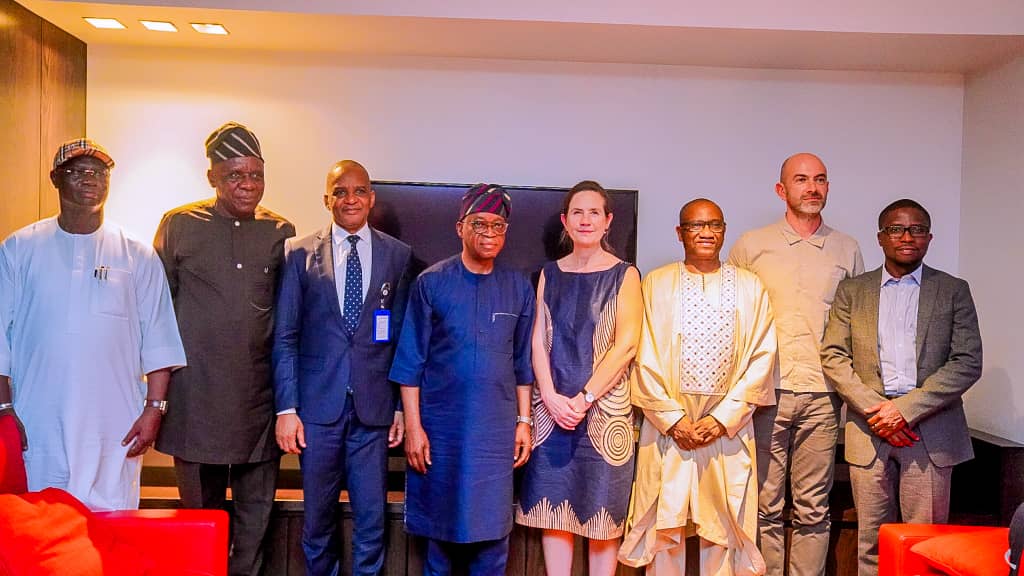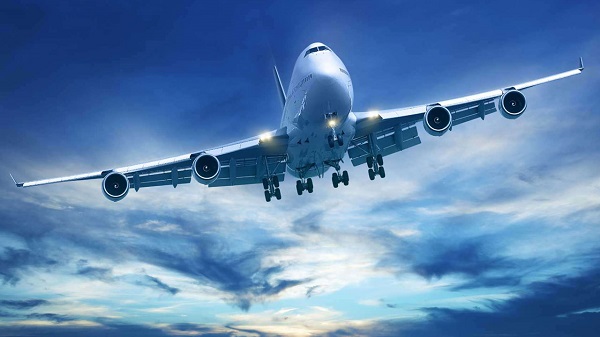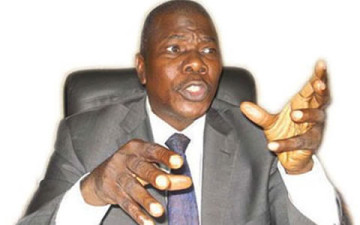2019 Budget Execution Threatened By OPEC’s Production Cut
· $60 crude oil $60 benchmark is deceptive
· FG must focus on railway projects, jettison ‘Nigeria Air’
By Kenneth Jukpor
While the Senate President and several political bigwigs in the polity have expressed dissatisfaction with the 2019 budget presented by President Muhammadu Buhari last week, finance experts have also posited that the crude oil production cuts adopted by the Organization of Petroleum Exporting Countries (OPEC) would stifle Nigeria’s 2019 budget execution.
Economic experts also argue that project crude oil benchmark of $60 was deceptive as the Brent crude was sold at the international benchmark, for $60.28, $57.40, $55.41 and $55.13 on Monday, Tuesday, Wednesday and Thursday last week, respectively.
Meanwhile, the Minister of Budget & National Planning, Senator Udoma Udo Udoma, maintains that the downward crude oil trend in recent months is not necessarily reflective of the outlook for 2019
Explaining the rationale behind the Federal Government’s decision to place the oil price benchmark at $60 per barrel, Udoma said: “Notwithstanding the recent softening in international oil prices, the considered view of most reputable oil industry analysts is that the downward trend in recent months is not necessarily reflective of the outlook for 2019. However, we will closely monitor the situation and will respond to any changes in the international oil price outlook for 2019.”
This downward crude oil price slide, coupled with the government’s struggles with domestic non-oil revenue indicate that more pressure would be on the oil revenue whose price showed a continuous decline throughout last week, despite production cuts adopted by OPEC to shore up prices.
Although the 2018 budget is expected to spill over to May 2019, the transport sector has been tipped to suffer from the reduction in capital expenditure.
During an exclusive chat with MMS Plusnewspaper, the Managing Director of Cowry Assets Management, Mr. Johnson Chukwu stated that the government is going to struggle to implement the early component of the 2019 budget based on the outlook for 2018.
However, the finance expert admonished the government to focus on is the key infrastructure especially those that affect transport like the rail sector.
Noting that the budget projected N80.22 billion as counterpart funding for railway projects including: Lagos-Kano (on-going) ; Calabar-Lagos (on-going); Ajaokuta-Itakpe-Aladja (Warri -Ongoing) ; Port Harcourt- Maiduguri (new); Kano-Katsina-Jibiya-Maradi In Niger Republic (new); Abuja-Itakpe and Aladja (Warri)-Warri Port And Refinery, Warri New Harbour (new); and Bonny Deep Sea Port & Port Harcourt and other rail projects; Chukwu said, “the government would have to focus on the key infrastructure especially the rail sector if it intends to make any meaningful impact in transportation. It would not be prudent for the government to focus on the Nigerian Air in 2019”
Chukwu commended the government’s decision to streamline the amount estimated for capital expenditure because the 2018 budget would spill into 2019.
“The logical thing was to bring down the amount they budgeted for capital expenditure going by the current outlook in 2018. Another issue is the fact that the budget is premised on the crude price of $60 per barrel while the prevailing price is $52 per barrel” he said.
In the proposed 2019 budget, N13 billion was provided for construction of Second Runway at Nnamdi Azikiwe International Airport Abuja, as well as N1.008 billion for construction of Terminal Building at Enugu Airport.
Another N280.44 billion was budgeted for the construction and rehabilitation of roads in every geo-political zone of the country, such as: Counterpart Funding for the Dualization of Makurdi – Enugu Road; Counterpart Funding for the Dualization of Akwanga – Jos – Bauchi – Gombe Road; Reconstruction of the Outstanding Sections of Benin – Ofosu – Ore – Ajebandele – Shagamu Expressway; and Construction of Bodo – Bonny Road.
Other major works projection under this provision were: Pavement Strengthening and Asphalt Overlay of Ajebandele – Ijebu Ode – Shagamu Road; Construction of Oju/Loko – Oweto Bridge to link Loko and Oweto; Dualization of Ilorin – Jebba – Mokwa/Bokani Junction Road; Kano – Maiduguri Road (Various Sections) ; Abuja – Lokoja Road (Various Sections); Dualization of Obajana Junction to Benin (Various Sections); and Lagos – Shagamu – Ibadan Dual Carriageway.
Also captured were: Early Works for the Construction of 2nd Niger Bridge in Anambra/Delta States; Construction of Kaduna Eastern By-pass; Abuja – Kano Dual Carriageway; and Dualization of Odukpani – Itu – Ikot Ekpene Road
According to the budget breakdown, another N280.44 billion was provided for the construction and rehabilitation of several other roads including: Construction of Kano Western Bye Pass; Abuja – Abaji ; Suleja – Minna Road; Rehabilitation & Expansion of Lagos – Badagry Expressway; Rehabilitation of Vandeikya – Obudu – Obudu Cattle Ranch Road; Rehabilitation of Ilorin – Kabba – Obajana Road In Kwara/Kogi; Reconstruction of Nasarawa – Loko Road; Dualisation of Sapele – Ewu Road (various sections); Reconstruction of Bida – Lambata Road in Niger State; Rehabilitation of Ikorodu – Shagamu Road; Rehabilitation of 9th Mile – Orokam Road In Enugu State; Re-construction of Sokoto – Tambuwal – Jega – Kontagora – Makera ; Design and Construction of Bridge Across the Cross River at Uwana (Ebony State) to Nkomoro (Cross River State); and Construction of Road Falali, Birni, Bako to Furoja Town (Ningilga).








